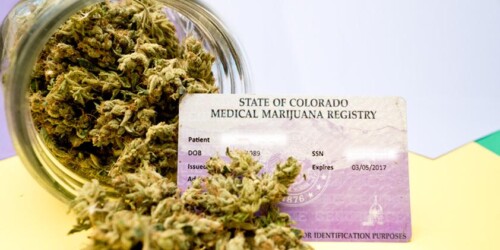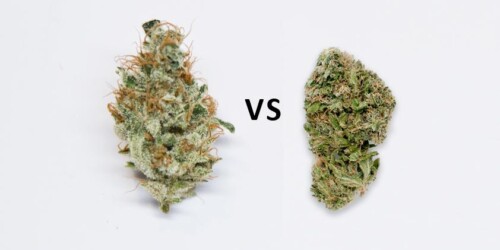
Key Takeaways
- The distinction between the two markets causes more harm than good for the cannabis industry and community
- Monetary incentive poses a threat to the quality, price, and customer service within the recreational marijuana market
- Recreational cannabis use goes beyond “getting high”
- Establishing a wellness routine through the combined use of THC and CBD is growing in popularity
While safe, legal access to cannabis for Americans is becoming more prevalent. It’s unfortunate that its implementation has been divided into two very distinct categories: medical and recreational cannabis. These designations are used to legally define the reason for use of cannabis. Unfortunately, the words have more than just their bureaucratic meaning to most of the cannabis industry. To better explain this distinction, we will yield to the grandfather of legal cannabis, Steve DeAngelo:
“Since the passage of legalization in Colorado and Washington, the term ‘recreational use’ has become the catchall phrase to describe all consumption of cannabis that is not ‘medical.’ Lacking any commonly accepted definition, ‘recreational use’ has in effect become a code word to describe ‘just getting high’—or intoxication. This is unfortunate, because the phrase just obscures more than it illuminates, and it perpetuates misconceptions about cannabis that have kept it illegal for decades.”
This understanding of recreational marijuana use is problematic because it assumes that people can only use cannabis for one of two reasons – as a medicine for a chronic pain or illness or as an intoxicant. When in fact, cannabis provides a myriad of unique benefits that are mistakenly characterized as “getting high.” Steve goes on to explain:
“These [benefits] include [the] ability to extend patience and promote self-examination; to awaken a sense of wonder and playfulness, and openness to spiritual experience; to enhance the flavor of meal, the sound of music, or the sensitivity of a lover’s touch; to open the mind and inspire creativity; to bring poetry to language and spontaneity to a performer; to catalyze laughter, facilitate friendship, and bridge human differences.”
Generally, medical and recreational marijuana use specifications do not describe the above benefits—and these truly are the reasons most people use cannabis. Defining cannabis use as purely “recreational” furthers the negative stigma surrounding its consumption and undermines the tangible benefits provided by the plant. However, beyond the semantics of the two options, there are a few things you should know about when it comes to medical vs. recreational marijuana.
Table of contents
Medical vs. Recreational: Accessibility and Profit
Recreational marijuana sales tend to be more profitable and accessible since anyone over the legal age limit can purchase cannabis in states where it is available. There is so much money to be made in recreational sales that both the state government and the recreational business owners benefit financially from limiting ‘medical’ access. Medical marijuana programs in most states aren’t subject to the same high taxes as recreational cannabis.
This has led to some states, such as Washington, creating more limitations to procuring a medical marijuana card such as stricter qualifying conditions—mental health conditions such as bipolar disorder, depression, and anxiety no longer qualify patients for medical assistance. Instead, medical access is limited to patients with terminal or debilitating medical conditions.
Find your state’s medical marijuana qualifying conditions here.
What does this mean for you?
The division of legal cannabis into two distinct markets (three, if you count the black market) has profound consequences for both consumers and the local communities. In a split market, quality suffers, costs rise, and service lags.
Quality

The medical market commands higher quality cannabis and more innovative products. The medical marijuana market was established years before the recreational side. As such, the cultivators within the medical cannabis sector are among the most skilled and passionate in the world. They took huge risks to produce legal, high-quality products that became the standard among medical cannabis consumers.
Alternatively, the recreational marijuana markets rely on tourists and uninformed locals to purchase their sub-par goods without knowing any better. Mass production often leads to the overuse of pesticides and the growth of molds and bacteria. As immoral as this may sound, it happens every day in legalized states.
Cost

The recreational marijuana market charges taxes that are nearly double those on the medical marijuana side in most states. For obvious reasons, most states have a greater interest in recreational cannabis sales, which bring in significantly more tax revenue. Furthermore, recreational marijuana dispensaries can charge more, knowing that the people shopping there do not have a medical card enabling them to purchase at lower prices.
Service

Most medical marijuana patients get treated with compassion and dignity. With recreational cannabis sales, the primary goal is getting you in and out as quickly as possible. The focus has shifted from providing quality care to serving as many customers as possible. In general, recreational marijuana budtenders are not as focused on educating you or providing honest recommendations—they are pushed to serve sub-par cannabis at above-average prices.
Redefining Cannabis for Wellness

With more states moving towards various legalization levels, it’s important to remember that the vast majority of cannabis use is for wellness purposes. Whether they realize it or not, most people are actually using cannabis to contribute to overall well-being and reach increased health levels. While utilizing more than just a single cannabinoid, many products incorporate the ‘entourage effect’ of combining the powers of THC and CBD on both medical and recreational shelves to promote wellbeing.
It’s time to redefine cannabis as a wellness product as opposed to a medical or recreational drug. Across all 50 states, Key to Cannabis supports people who are already utilizing CBD products for health.
We can support a better understanding of medical and recreational cannabis use by avoiding phrases like “get high” that perpetuate the intoxicant/recreational classification. Does this mean you absolutely have to get a medical marijuana card? No. However, you can vote with your dollar to support the few cannabis shops focused on product quality, service, and user experience as opposed to those that only care about the bottom line.
Unfortunately, the recreational marijuana market will continue to cut corners until it reaches a point where consumers refuse to pay for that substandard level of service and product quality.
As more states vote on legalization initiatives, it’s important to understand what the measure entails, how the policy will be implemented, and what that means for you and your community. Do not assume that all legalization measures are written to your benefit.
Table of Contents

